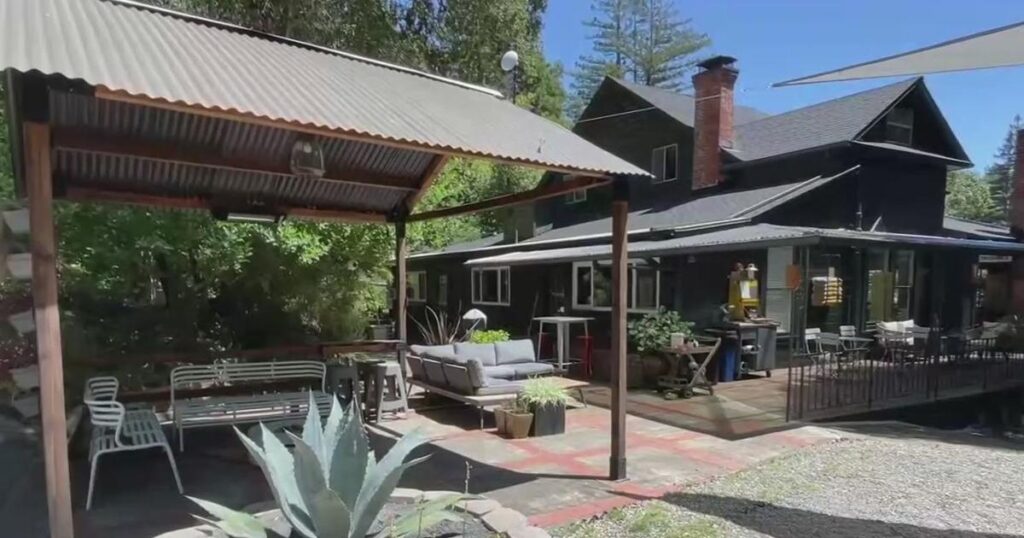It's no secret that insurance has become harder for many homeowners to find as major insurers have withdrawn from the state, but the blow could be even bigger for businesses in areas especially prone to wildfires.
A Sonoma County business owner said he's spending so much time trying to get insurance policies that it's making it harder for him to pursue his dreams.
Another beautiful Memorial Day along the Russian River saw the streets of Guerneville bustling with activity, and what should have been a profitable weekend for Brice Skolfield's Bed and Breakfast might have actually been enough to break even.
“When you change jobs and go into a completely different industry and buy a property like this, there are obviously a lot of things to be worried about,” he said. “To be honest, insurance wasn't on the list.”
Skolfield opened Mine & Farm Inn in 2019, just days before the Kincade Fire and months before the pandemic shut down operations. But once those obstacles passed, insurance became his biggest problem.
“We noticed right away that prices were going up very quickly,” he said. “I mean, since we bought the property, prices have gone up 222 percent.”
Although there are many trees on and near the property, Skolfield doesn't think it's particularly dangerous: He installed a 5,000-gallon water tank and sprinklers on the roof and throughout the lush, three-acre property.
The property is surrounded on three sides by Korbel Winery vineyards and next to a Cal Fire station, but he's had multiple insurers drop him and is now paying for the overburdened California FAIR Plan as a last resort.
“I don't think this is a personal issue. I think we just got caught up in bureaucracy wanting to get out of the market,” Skolfield said.
As bad as it is for homeowners, it's even worse for businesses because there are fewer insurers offering that type of coverage, said insurance broker and industry analyst Carl Sussman. But he said efforts currently underway in Sacramento to reform the way premiums are set could bring more competition back to the state's marketplace.
The plan, called the “Sustainable Insurance Strategy,” would give insurers more freedom to assess risk and premiums for each property individually, rather than grouping properties together under a common zip code. The new regulations were supposed to be finalized by the end of the year, but Newsom said the state can't wait that long, and parts of the plan could be implemented within the next 30 to 60 days.
“The good news is that for the first time in a really long time, the insurance market is going to look dramatically different in the coming months, quarters and certainly early next year than it does today,” Sussman said.
Bryce thinks insurance might become more available, but is skeptical that costs will come down much. And while she makes very little money in the business, she doesn't really have many options.
While his dream of running an idyllic country inn may have come true, keeping it insured was an unexpected reality.
“We're focused on delivering a quality product, but at some point we have to face the question of how far can we take this product,” he said. “How long can we commit to this endeavor before we lose sight of some of the foundational principles of why we started this in the first place?”
This is just one man's story, but it's a common problem for many businesses that are threatened by wildfires through no fault of their own.


